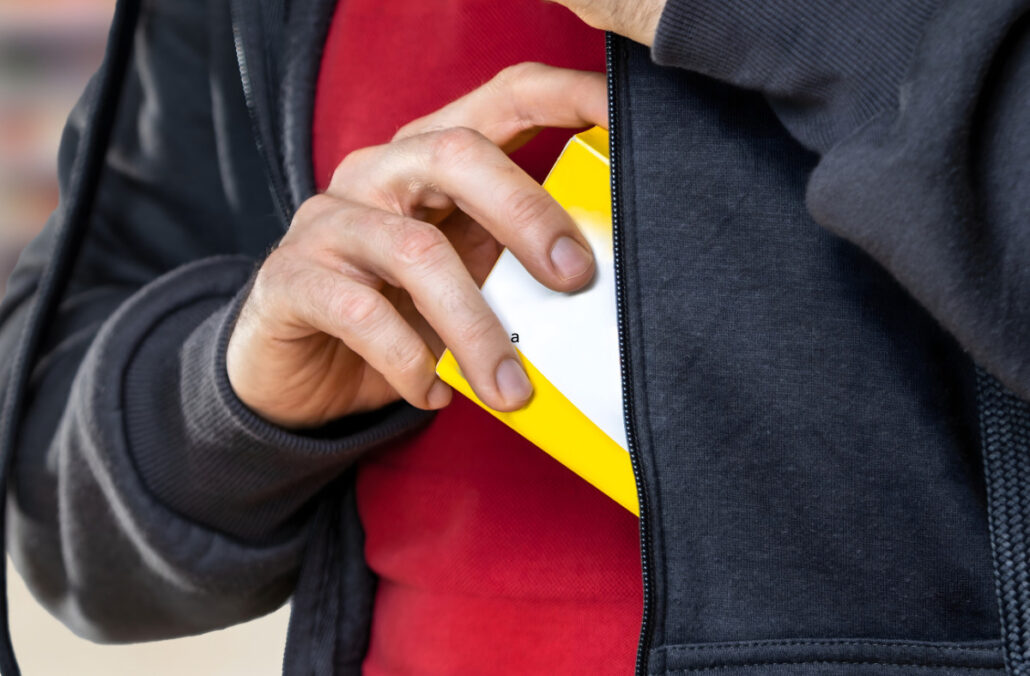
Getting caught shoplifting in Texas can be one of the most stressful and embarrassing moments of your life. Whether it was a split-second lapse in judgment, a misunderstanding, or a serious mistake you now regret, the reality is clear: you’re facing potential legal trouble.
In Texas, shoplifting isn’t treated as a minor inconvenience. It’s charged under the state’s theft laws, and even a low-dollar item can leave you with a criminal record that follows you for years.
This guide will walk you through how Texas law defines shoplifting, what to expect after being caught, potential penalties, and options that might help you reduce the damage, especially if it’s your first offense.
This article does not constitute legal advice, but it will give you a clear picture of the process so you can take informed steps toward protecting your future.
Quick Take: What to Do in the First 10 Minutes
As soon as you realize you’re being accused of shoplifting, it’s essential to stay calm and follow these steps:
- Do not resist arrest or run away. This will only make matters worse.
- Remain silent and do not provide any further information until you have spoken with a lawyer.
- Contact a criminal defense attorney immediately – they can advise you on your rights and how to proceed.
- Take note of the location, time, and details of the incident – this information may be useful in your defense later on.
- Cooperate with the authorities and follow their instructions, but do not admit to any wrongdoing.
- Request to see any evidence against you before making any statements.
- Refrain from posting about the incident on social media – this could be used against you in court.
Additionally, it’s crucial to gather witnesses who can testify to your character and provide an alibi if necessary.
Texas Law 101: How Shoplifting Is Charged
Texas treats shoplifting under the general theft statute (Texas Penal Code §31.03), not a separate “retail theft” law. Under the law, theft is unlawfully appropriating property with the intent to deprive the owner.
Shoplifting, or taking items from a store without paying for them, fits within that definition. Depending on the value of the merchandise, theft can be charged as anything from a Class C misdemeanor to a first-degree felony.
The charge usually depends on the value of the items stolen. For example, if you get caught stealing something that’s worth under $100, you’ll be charged with a Class C misdemeanor. Stealing something that’s worth between $2,500 – $29,999.99 is a state jail felony.
Can Stores Detain You? (Texas “Shopkeeper’s Privilege”)
If you are suspected of shoplifting in Texas, you may be wondering if the store has the right to detain or hold you until the police arrive. The answer is yes, under certain circumstances.
The “Shopkeeper’s Privilege” law in Texas allows a merchant or their employee to detain a person suspected of shoplifting for investigation and/or arrest. This privilege applies to any type of business, including retail stores, grocery stores, restaurants, and more.
Under Texas law (Texas Penal Code § 17.16), a merchant or their employee can temporarily detain an individual they reasonably believe has stolen merchandise from their store. This includes concealing items, switching price tags, or any other form of theft. The detainment must take place on the store’s premises and for a reasonable amount of time to conduct an investigation.
What Happens Next: Citation vs. Arrest, and the Texas Court Process
After being detained by a merchant or their employee, the individual in question may face one of two outcomes: citation or arrest. A citation is a written notice that requires the person to appear in court at a later date. This is typically used for minor offenses and can result in a fine or community service.
On the other hand, if there is enough evidence to suggest that the individual committed theft, they may be arrested and taken to jail. From there, they will go through the Texas court process, which includes an initial appearance before a judge, potential bail hearings, a trial, and sentencing if found guilty.
It’s important to note that even if an individual is not arrested at the time of the alleged theft, a warrant can still be issued for their arrest, and they may be arrested at a later time. It’s also important to understand that theft charges can range from misdemeanors to felonies, depending on the value of the stolen goods and any prior criminal history.
Penalties and Typical Sentencing Ranges in Texas
In Texas, theft is typically classified as either a misdemeanor or a felony offense. The severity of the charge and potential penalties depend on the value of the stolen property.
For theft of property valued under $100, it is considered a Class C misdemeanor with a penalty of up to a $500 fine. However, if an individual has previously been convicted of theft two or more times, even for low-value items, they can face a state jail felony charge with penalties including 180 days to 2 years in jail and/or a fine up to $10,000.
Misdemeanor Theft
Misdemeanor theft charges are typically reserved for lower-value stolen goods, usually less than $1,000. In Texas, this is classified as a Class C misdemeanor and can result in fines up to $500.
State Jail Felony Theft
If the stolen goods have a value between $1,000 and $20,000, it is considered a state jail felony in Texas. This charge carries potential penalties of 180 days to 2 years in a state jail and/or a fine up to $10,000.
Third Degree Felony Theft
Theft of goods valued between $20,000 and $100,000 is classified as a third-degree felony in Texas. This can result in penalties of 2 to 10 years in prison and/or a fine of up to $10,000.
Second Degree Felony Theft
Goods worth between $100,000 and $200,000 are classified as second-degree felony theft in Texas. The potential penalties for this charge include 2 to 20 years in prison and/or a fine up to $10,000.
First Degree Felony Theft
The most serious form of theft in Texas is a first-degree felony, which applies to goods valued at $200,000 or more. This can result in 5 to 99 years in prison and/or a fine up to $10,000.
It’s important to note that the penalties for theft charges may also be enhanced if the offender has prior convictions or if violence was involved during the commission of the crime. Additionally, restitution may be required as part of the punishment for theft.
Civil Fallout: Demand Letters and Civil Liability in Texas
Besides criminal charges, a person who is accused of theft may also face civil liability in Texas. This means that the victim of the theft can sue the offender in civil court for damages incurred as a result of the theft.
In order to pursue this route, the victim must first send a demand letter to the offender, requesting repayment or return of stolen property. If the offender fails to comply with this demand within 30 days, then the victim can file a civil lawsuit.
In such cases, the offender may be ordered to pay not only restitution for any stolen goods but also additional damages and legal fees. The burden of proof in a civil case is typically lower than in a criminal case, so even if the offender was not convicted of theft in criminal court, they may still be found liable for the crime in civil court.
Juveniles and Shoplifting in Texas
Juvenile shoplifting, also known as “theft by a minor,” is a common issue in Texas. According to the National Association for Shoplifting Prevention (NASP), approximately one out of every 11 people caught stealing is under the age of 18.
In Texas, juveniles are treated differently from adults when it comes to shoplifting charges. The state has programs in place that aim to prevent juvenile delinquency and provide rehabilitation opportunities instead of harsh punishment.
One way Texas deals with juvenile shoplifters is through diversion programs. These programs allow first-time offenders to avoid criminal prosecution by completing certain requirements. This may include restitution, community service, educational classes, or counseling sessions. If the juvenile successfully completes the program, their case may be dismissed, and they can avoid having a criminal record.
Another approach used in Texas is restorative justice. This involves bringing together the offender, victim, and community to address the harm caused by the shoplifting incident. The goal is to repair relationships, hold the offender accountable for their actions, and prevent future incidents.
Final Thoughts
Getting caught shoplifting in Texas is serious, but it doesn’t have to define the rest of your life. The state’s theft laws carry steep consequences, even for low-value items, but many first-time offenders have options that can reduce or even avoid a permanent criminal record. The key is acting quickly, understanding your rights, and taking the situation seriously from the start.
Whether you’re facing a Class C misdemeanor or a felony charge, the next steps matter. Don’t ignore court dates, respond promptly to any civil demand letters, and consider seeking legal help from a Texas criminal defense attorney who knows your county’s procedures and diversion programs.
With the right approach, it’s possible to move past this mistake, protect your record, and prevent it from damaging your future education. Learn from the experience, fulfill any court requirements promptly, and commit to making choices that keep you out of legal trouble for good.



